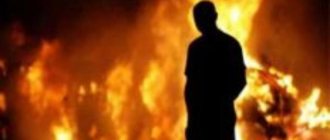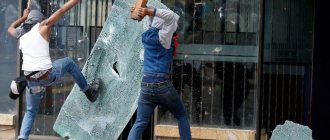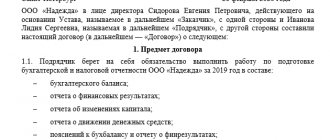When entering into civil relations with various persons - both individuals and legal entities, a citizen or organization expects to solve their problems profitably, but instead sometimes receives material damage. The situation is extremely unpleasant and is often accompanied by moral suffering. How to legally demand compensation for damages in order to get money - and, preferably, without lengthy legal red tape?
The culprit is not always eager to fairly compensate for the damage that was caused to him. Problems also arise with determining the amount to be paid. To avoid mistakes when collecting damages and to protect your rights, contact an experienced lawyer.
Legal basis for collecting money for damage caused
From the point of view of legislation, damage is considered as a type of loss that the injured person has the right to demand from the culprit. The Civil Code of the Russian Federation defines this concept in paragraph 2 of Art. 15. The concept of damage includes:
1) Direct loss, damage or reduction of property (by damage we mean the occurrence of defects that led to a decrease in the value of material objects).
2) Expenses that the victim is forced to bear to restore the violated right, that is, to return to the original situation. This means that the culprit is obliged to compensate not only the cost of the property that he lost or damaged, but also the additional expenses of the plaintiff that arose in connection with this (for example, payment of bank commissions for money transfers, examinations in courts, transport services, etc.).
An important point: the legislator, when mentioning compensation for expenses incurred by the injured party, takes into account not only those already incurred at the time the statement of claim was submitted to the court, but also future ones.
Both damage to property (loss, damage, reduction in its value) and the costs incurred in connection with this to restore the status quo (return to the original state) are called real damage by the legislator. The concept of “reality” was introduced to distinguish it from the concept of lost profits - another type of loss. It should be emphasized that the expenses incurred by the injured party to restore the violated right belong precisely to the category of real damage.
The plenum of the Supreme Court will explain the specifics of criminal liability for forgery of documents
On November 19, the Plenum of the RF Armed Forces sent for revision a draft resolution “On some issues of judicial practice in cases of crimes provided for in Articles 324–327.1 of the Criminal Code of the Russian Federation.”
The following compounds relate to crimes against the order of management:
Art. 324 of the Criminal Code establishes liability for the illegal acquisition and sale of official documents and state awards;
Art. 325 – for theft and damage to documents, stamps, seals and theft of excise stamps, special stamps and marks of conformity;
Art. 325.1 – for unlawful taking of the state registration plate of a vehicle;
Art. 326 – for falsification and destruction of vehicle identification number;
Art. 327 – for forgery, production and circulation of counterfeit documents, state awards, stamps, seals and forms;
Art. 327.1 – for the production, sale and use of counterfeit excise stamps, special stamps and marks of conformity.
The Plenum will give the concept of an “official document”
How to recover damages caused
When seeking compensation for property damage, you should not immediately sit down to write a statement of claim. In many cases, with the participation of a lawyer, this issue can be resolved pre-trial. A competently drafted and correctly directed claim to the opposite party will demonstrate the seriousness of your intentions and will force the potential defendant to seriously think about whether it is worth getting involved in legal proceedings. And negotiations with the participation of a lawyer will increase the impact.
[1] Moreover, there are situations when the law directly indicates the need to attempt to resolve the problem through a claim procedure: without this stage, the claim simply will not be accepted. The need to submit a claim in advance is also often specified in contracts.
In the pre-trial stage, it may be advisable to try to reach a compromise solution. It is understandable to want to receive as much compensation as possible from the culprit, but in some cases it is more profitable to give in on certain points, but avoid an exhausting trial.
A lawyer specializing in economic litigation will help you defend your rights in pre-trial proceedings and, if necessary, in court. And the first option is much preferable, since it saves both time and money.
If the opposite party persists, and also if at the pre-trial stage it is not possible to reach a compromise solution regarding the amount of damage caused, the next stage will be the trial.
How to prove to the court that real damage has been caused
When preparing a claim for compensation for property damage you have received, you need to prepare significant evidence for the court, namely:
- prove the fact of damage;
- establish its size in monetary terms (to determine the amount that will be requested for compensation);
- prove that the damage was associated with illegal actions or inaction of the culprit who caused it;
- demonstrate to the court the cause-and-effect relationship between the occurrence of the damages caused and the actions or inactions of the opposite party.
Thus, when preparing a statement of claim to court for the recovery of financial compensation, it is necessary to pay attention to two key points: firstly, an accurate calculation of the property damage caused, and secondly, evidence that it is the defendant who is to blame for its occurrence.
When drawing up a claim, it is also very important to correctly determine the jurisdiction of the case. To compensate for property damage, both individuals and legal entities turn to the authority of Themis. Depending on the size of the claim and the nature of the case, it is dealt with by a magistrate or arbitration court. The question of jurisdiction in each specific case sometimes puts plaintiffs in difficulty. In order to avoid making a mistake in this matter, which could result in the claim being rejected, it is better to entrust the preparation of the application to a qualified lawyer.
You should also take into account the legal specifics when collecting compensation in contractual relations, labor conflicts, as well as as a result of administrative and criminal crimes. Often, when conducting legal proceedings, not only the application of the Civil Code is required, but also knowledge in other legal areas. For example, when recovering damages caused to an employer, one should also be guided by the provisions of the Labor Code of the Russian Federation.
Risk of losing a procedural document
September 23, 2021 4:53 pm
They want to prosecute a Sakhalin lawyer because of a torn protocol
AG learned , a criminal case was opened against the lawyer of the Sakhalin Bar Chamber (SAP) Alexander Kuleshov under Part 2 of Art. 294 of the Criminal Code of the Russian Federation “Obstruction of the administration of justice and the conduct of a preliminary investigation.” According to investigators, the defense lawyer tore up the protocol of the interrogation of the accused, who confessed to committing the incriminated crime, after the end of the investigative action. In turn, the lawyer denies the version of law enforcement officers and claims a violation of his own professional rights in the course of providing qualified legal assistance to his client. SAPO President Maxim Belyanin said that the chamber will provide all possible assistance to the lawyer within the framework of measures permitted by the criminal procedural law.
Incident according to lawyer
As Alexander Kuleshov told AG, on December 28, 2021, he was appointed as a defense attorney for citizen of Uzbekistan K., accused of facilitating terrorist activities, in whose criminal case two defense attorneys had already been replaced. Having called one of his predecessors, the lawyer learned that the investigator had a long conversation with the client in private, persuading him to give a confession.
According to the lawyer, after joining the case, he expressed his intention to familiarize himself with its materials, which caused indignation among the senior investigator of the investigative department of the FSB Directorate for the Sakhalin Region, Igor Erdniev, who initially refused to provide the requested documents. On January 23, Alexander Kuleshov reported, he received a resolution from the investigator to satisfy his request to familiarize himself with the materials of the criminal case. At the same time, the investigator invited him to participate in the interrogation of the accused, which was scheduled for January 24, but the lawyer objected that he could not participate in this investigative action without knowing the details of the criminal case.
On the day of the interrogation, Alexander Kuleshov met with K., who spoke about what he was accused of and said that he had been promised that the punishment would be minimal if he confessed to anything. According to the lawyer, Igor Erdniev listened to the entire conversation, and in response to the remark about the illegality of this, he replied that he could appeal his actions.
During the interrogation of the accused, in which translator I. took part, as Alexander Kuleshov explained, the investigator did not allow him to use a voice recorder, despite objections about the illegality of such a ban. According to the defense lawyer, the investigative action itself lasted no more than 5 minutes and resembled a re-enactment, during which K. read some text from a piece of paper, the translator allegedly translated, and the investigator did not fill out the interrogation report, but was busy with other matters.
After the interrogation ended, Alexander Kuleshov began to make comments into the protocol. According to him, the investigator demanded to hand over the document. “I told him that I had not finished working with the document yet, that when I finished, I would give everything to him. Then the investigator stood to my right and began to snatch the entire document from me, while I held the draft protocol. The investigator, grabbing the sheets, with the exception of the last one, pulled them out of my hands and, tearing them out, tore them,” the defense lawyer said. “I didn’t see exactly how the sheets were torn, because I jumped up from the table, and then a verbal altercation began between me and the investigator. So, investigator Erdniev started shouting: “What have you done and what to do now?”, to which I literally answered him the following: “It’s okay, there was no need to pull when I was working with documents. I haven’t finished filling out the document yet, and there’s no point in snatching it from me.”
After this, the lawyer explained, the investigator asked him to go out and wait in the corridor, which the lawyer did, and soon another FSB officer entered the office. When he was invited back into the office, according to the defense attorney, the investigator turned on the camera on his phone and began asking his colleague for details about how the lawyer tore up the protocol. “At that time I said: I do not advise you to give false testimony. There is a video camera in the corridor that recorded when you came here and that you were not here at the time when investigator Erdniev tore up the protocol. After my words, Erdniev’s colleague did not say anything on camera, and the investigator stopped recording,” the defense lawyer explained.
According to Alexander Kuleshov, when he photographed the torn protocol on his phone, the investigator knocked it out of his hands with curses. The defender added that he was subsequently released from the FSB building only after he called the duty officer of this department with a message about the illegal detention.
On January 27, the lawyer reported the crime to the 318th Military Investigation Department of the Investigative Committee, which subsequently refused to initiate a criminal case. Next, the investigator removed the lawyer from participating in the case, the defense attorney appealed this in accordance with Art. 125 of the Code of Criminal Procedure of the Russian Federation, but the judge did not accept the complaint, citing the fact that the lawyer was no longer a defense attorney in the case.
A criminal case has been initiated against the lawyer under Part 2 of Art. 294 of the Criminal Code of the Russian Federation
On May 18, as Alexander Kuleshov explained, an investigator from the Investigative Committee for the Sakhalin Region called him and said that a criminal case had been opened against the lawyer. The resolution to initiate a criminal case (available to the “AG”) noted that the lawyer destroyed the protocol of interrogation of the accused by tearing 6 sheets of the document containing confessions into separate parts. “Thus, there is sufficient data indicating the presence of signs of a crime under Part 2 of Art. 294 of the Criminal Code of the Russian Federation, which, in accordance with Part 2 of Art. 140 of the Code of Criminal Procedure of the Russian Federation is the basis for initiating a criminal case,” the document states.
Alexander Kuleshov reported the criminal case to the SAPO, which also received a proposal from the regional department of the Ministry of Justice (the AG has it) to initiate disciplinary proceedings against the lawyer. According to the department, an attempt to destroy the protocol of interrogation of the accused as evidence in a criminal case entails the risk of losing the procedural document and can be regarded as an obstacle to a comprehensive, complete and objective investigation of the case. “The method chosen by lawyer Alexander Kuleshov to carry out orders to protect the rights and interests of the accused K. cannot be regarded as a conscientious, qualified performance of his duties by the lawyer and be an acceptable means of defense,” the submission noted.
Subsequently, the lawyer appealed the decision to initiate a criminal case to the Yuzhno-Sakhalinsk court, citing a violation of the deadlines for the procedural check, which lasted three and a half months instead of the 30 days required by law. Nevertheless, the court refused to satisfy the complaint; the Sakhalin Regional Court on September 18 upheld this decision.
The Chamber of Lawyers appealed to the regional prosecutor's office, the Investigative Committee and the FSB
Subsequently, the president of the Sakhalin Bar Association, Maxim Belyanin, sent an appeal (available from “AG”) addressed to the prosecutor of the Sakhalin region, the heads of the regional FSB Directorate of Russia and the regional Investigative Directorate of the RF IC.
He, in particular, noted that a criminal case has not been initiated against the investigator based on the lawyer’s report of a crime, which excludes the possibility of a confrontation between the latter and K. Maxim Belyanin indicated that in this case there is a violation of the rights of Alexander Kuleshov, since the report drawn up according to investigator Erdniev's report about the destruction of the criminal case materials, is checked in full, and the lawyer's statement about Erdniev's illegal actions is considered without the maximum use of all procedural methods of collecting evidence.
The president of the chamber suggested that the investigation put pressure on the client’s lawyer, therefore all the defense lawyers who took part in K.’s case were a potential obstacle for law enforcement officers, since they acted strictly within the law and explained to the accused the right to refuse to testify, despite the insistent demands of the law enforcement agencies to give self-incrimination. Accordingly, in such a situation, signs of a crime are seen - coercion to testify. “In such a situation, Erdniev’s indignation at the actions of lawyer Alexander Kuleshov becomes obvious and understandable, who, after the interrogation and confession of the accused, began to enter into the protocol remarks that were objectionable to the investigator. We believe it is necessary to give a legal assessment in this part of the actions of investigator Erdniev within the framework of the criminal case under investigation and the audit material at the request of Alexander Kuleshov,” the appeal states.
Maxim Belyanin, with reference to the testimony of witness I., added that the protocol of interrogation of the accused was not completed to the end, therefore, by virtue of Art. 83 of the Code of Criminal Procedure of the Russian Federation, this document cannot be admissible evidence in a criminal case against a lawyer. “As a result, damage to this protocol, which has no legal force, by either party does not constitute a crime under Part 2 of Art. 294 of the Criminal Code of the Russian Federation,” he emphasized. – In addition, the protocol was not burned, not completely or even partially destroyed, but only torn. Therefore, if not completely lost, damage to the investigative protocol in the form of a tear does not make it inadmissible or lost evidence in the case and does not affect the process of pre-trial collection of evidence or proving the guilt of the accused. Even when torn, it is readable and all the data in it can be made out.”
The SAPO president explained that the investigator did not complete the protocol in accordance with the norms and requirements of the Code of Criminal Procedure of the Russian Federation, but interrupted the investigative action without calling an interpreter to complete the protocol. “In addition, there is no evidence that the purpose of the person who tore up the interrogation protocol of the accused dated January 24, 2021 was to interfere in any form with the activities of the investigator in order to obstruct a comprehensive, complete and objective investigation of the case. The protocol could be printed, the lawyer and the accused were in the investigator’s office, and nothing prevented them from calling an interpreter and completing the investigative action in accordance with the norms of the Code of Criminal Procedure of the Russian Federation. Thus, in the actions of the person who tore the protocol, in any case, there is no corpus delicti under Part 2 of Art. 294 of the Criminal Code of the Russian Federation,” noted in the appeal. Maxim Belyanin asked to take into account the stated facts in order to terminate the criminal case against Alexander Kuleshov due to the absence of the incriminated corpus delicti in the actions of the latter.
Comments from the lawyer, his defenders and the president of the SAP
Maxim Belyanin told AG that the Qualification Commission of the Chamber postponed the consideration of disciplinary proceedings against Alexander Kuleshov, since it does not have the authority to establish the presence of a crime in the lawyer’s actions, since this is within the competence of law enforcement agencies. “From the moment the lawyer applied to the chamber, a meeting was held with members of the Commission for the Protection of Professional Rights of Lawyers of the SAP. Lawyer, member of the Chamber Council and Chairman of the Commission for the Protection of Professional Rights of Lawyers Sergei Protopopov began defending his colleague. Our chamber will provide all possible assistance to the lawyer within the framework of measures permitted by criminal procedural law,” he noted.
In a commentary to AG, Alexander Kuleshov called his criminal prosecution far-fetched and unfounded. “I had no intention of committing the act accused of me, since I wrote one and a half pages of comments to the interrogation protocol not in order to tear it up in front of the investigator. It was important for me that my comments reached the prosecutor and the court. It was the investigator who prevented me from fulfilling my professional duties as a lawyer: he did not provide me with the materials of my client’s criminal case for review, I did not know the essence of this case and what my client is accused of. And after all this, he snatched the protocol of the interrogation of the accused from me. They are going to charge me on September 28,” he said.
Alexander Kuleshov’s defense attorney, Oleg Reshetnik, believes that the procedural deadlines for the pre-investigation check were violated in the criminal case. “The South Sakhalin City Court and the Sakhalin Regional Court recognized the decision to initiate a criminal case as legal, despite the defense’s arguments. After receiving a copy of the regional court's decision, a cassation appeal will be prepared. I would like to draw attention to the fact that, according to the investigation, Kuleshov deliberately destroyed the interrogation report of his client in order to impede the investigation of the case, but this argument is refuted by simple human logic. Thus, at the end of the investigative action, the lawyer wrote down comments on the interrogation protocol of one and a half standard sheets, and after the work was done, he allegedly “tried to destroy” his works,” he emphasized.
Lawyer Sergei Protopopov believes that there are sufficient grounds to terminate the criminal case against the lawyer due to the lack of corpus delicti in his actions and the actual event of the crime: “However, the investigator conducting the preliminary investigation notified me and my client of the need to appear next week to file charges Alexander Kuleshov."
According to the defense lawyer, the entire legal community of the Sakhalin region is outraged by the initiation of this criminal case and is monitoring further developments, since any of the lawyers has repeatedly witnessed that after the investigative report was printed and before all participants signed it, the document, due to the provisions established in it errors and inaccuracies were torn up and redone on the spot by any participant. “And these actions were not regarded as illegal, constituting a criminal offense,” noted Sergei Protopopov.
Zinaida Pavlova
SharePrint Direct link to the material:
Share







